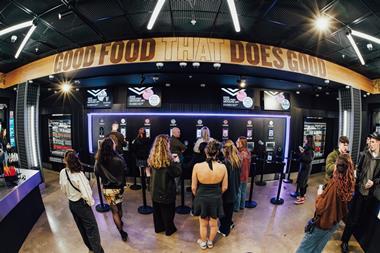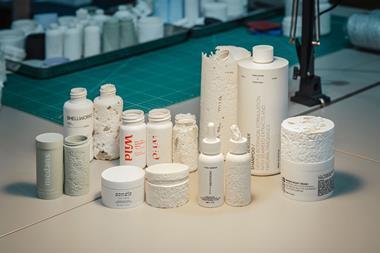
Food on TikTok Shop has been sold without the legally required allergen warnings.
An investigation by the BBC discovered multiple listings of snacks and sweets that failed to highlight they contained one of the 14 allergens that UK businesses must declare.
Allergy UK has urged those with allergies to “abstain from buying any food or drink from TikTok sellers”. The group – which became aware of the issue earlier this year – said the lack of “clear and accurate labelling” on products sold on the platform was “causing growing concern within the allergic community, as unclear labelling increases the risk of accidental exposure to allergens, which can be dangerous, especially for those with severe allergies”.
TikTok said the social media and e-commerce platform was “committed to providing a safe and trustworthy shopping experience”. It continually reviewed the strict measures for food sellers using TikTok Shop, it said.
“We have policies and processes in place with our sellers to ensure the safety of food and beverages sold on our platform and we will remove products that breach these policies,” a spokesman told The Grocer.
The BBC found UK-based seller called The Nashville Burger selling a burger-making kit that contained milk and wheat on the platform, which listed allergen information as “spices” while the ingredient description simply said “flour”.
Another seller, Mega Buy UK, was found to be selling a Squid Game-themed sweet treat that listed the ingredients and allergens as “not applicable”. The BBC also found a seller called UK Snack Supply advertising lollipops and crisps with no ingredient or allergen information.
All food businesses are legally required to tell customers if any food they provide contains any of the 14 main allergens, namely celery, cereals containing gluten (such as wheat, rye, barley, and oats), crustaceans, eggs, fish, lupin, milk, molluscs, mustard, peanuts, sesame, soybeans, sulphur dioxide and sulphites and tree nuts. The requirement extends to all additives, processing aids and any other substances which are present in the final product.
Food regulation expert Georgina Stewart from The Nutrient Gap dubbed TikTok Shop “the wild west of food labelling”.
“This is more than just a regulatory hiccup, it’s dangerous,” she said. “We’ve got UK-based sellers pushing food products with no mention of milk, wheat or soya – some of the biggest allergen risks. TikTok say they have policies in place. But clearly, policy without enforcement is just window dressing.
“Some sellers even had the nerve to write ‘not applicable’ under the allergen info. Excuse me? Let’s stop pretending it’s OK to let the rules slide because it’s ‘just TikTok’. That’s not how food law works. They must vet their sellers properly and block those who don’t comply before something awful happens, not after,” Stewart added.
Allergic nation
The UK has some of the highest prevalence rates of allergic conditions in the world, with more than 20% of the population affected by one or more allergic disorders.
More than half of people with food allergies (56%) have had an allergic reaction from mislabelled or unclear food packaging, with 23% having suffered multiple reactions, according to GS1 study last year. In the UK, hospital admissions from food-induced anaphylaxis have more than doubled in the past 20 years [NHS], while almost half of adults with a food allergy say they have suffered a reaction to incorrectly labelled food at some point, according to a survey of 5,000 people by Allergy UK.
In England and Wales, food allergies kill about 10 people each year, says the Food Standards Agency.
“Failure to comply with the relevant legislation exposes those with allergies to potentially fatal risks, and there have recently been a number of high-profile cases where lives have been tragically lost,” said James Connell, senior regulatory manager at regulatory tech business Rubicon Bridge.
“In addition to jeopardising the health and ultimately lives of consumers, the provision of inadequate food information exposes companies to the risk of severe reputational damage, commercial and operational disruption, and criminal penalties. The proactive implementation of a robust compliance system has an integral role in maximising consumer protection, while minimising a company’s risk of the legal and financial ramifications commonly associated with any allergy incident.”
TikTok Shop was launched in the UK in 2021, allowing users to “transition from product discovery to purchase in just seconds” TikTok said. That involves video content posts with embedded ‘buy’ buttons, and the ability to make products shown in live streams instantly shoppable.
Several fmcg brands are using it to sell products directly to users, among them Nivea, Britvic, Andrex, The Chuckling Cheese Company, Free Soul, Wellgard and Ooh & Aah Cookies. In February, Lidl laid claim to be the first supermarket to sell through TikTok Shop, with the launch of high-protein products for gym users.
Yesterday, TikTok moved to ban users searching for “skinnytok” – a hashtag that critics say directs people to content promoting extreme diets and weight-loss tips. The hashtag has come under critical scrutiny from the European Commission, the French digital regulator Arcom and campaigners.



















No comments yet